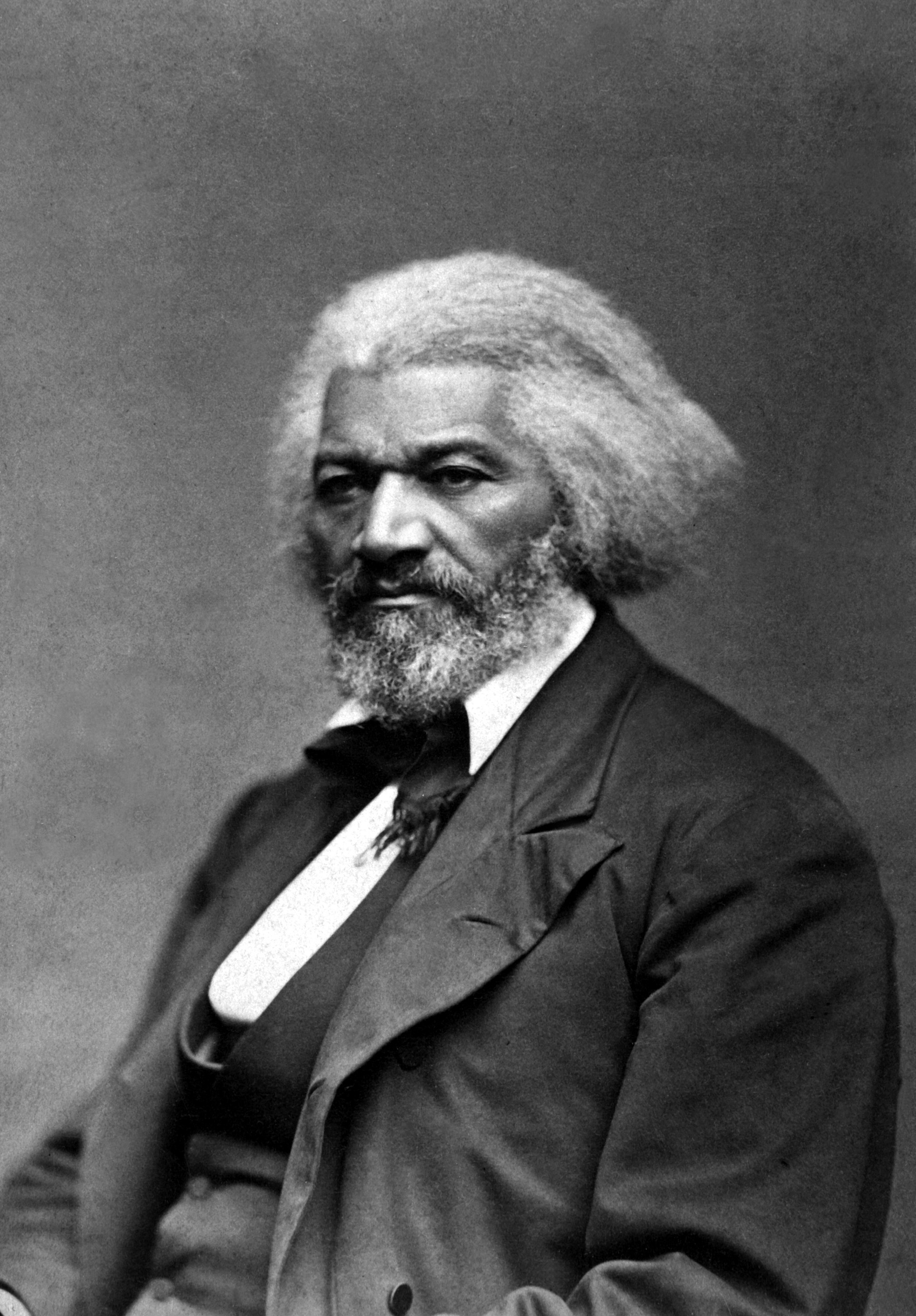„Границы возможностей тиранов определяются выносливостью тех, кого они угнетают.“
The limits of tyrants are prescribed by the endurance of those whom they oppress.
Фредерик Дуглас — американский писатель, просветитель, аболиционист, редактор и оратор. Один из известнейших борцов за права чернокожего населения Америки, руководитель негритянского освободительного движения.
Бежавший из рабства Дуглас стал лидером аболиционистского движения. Обладая выдающимися ораторскими способностями и умением излагать свои мысли письменно, Дуглас развернул обширную антирабовладельческую кампанию. Он стал живым ответом на аргументы рабовладельцев, утверждавших, что рабам не хватает интеллекта, чтобы стать независимыми американскими гражданами. Многие жители северных штатов США даже не могли поверить, что такой великий оратор, как Фредерик, был рабом.
Как писатель, Дуглас написал несколько мемуаров. В автобиографии «Повесть о жизни Фредерика Дугласа, американского раба» Дуглас красноречиво описал свои рабские будни. Книга стала бестселлером и влиятельным произведением в поддержку отмены рабства, впрочем, как и его другая писательская работа, «Мое рабство, моя свобода» . После Гражданской войны Дуглас оставался активным борцом против рабства и написал свою последнюю автобиографию, «Жизнь и эпоха Фредерика Дугласа». Он также поддерживал женское избирательное право.
Wikipedia

„Границы возможностей тиранов определяются выносливостью тех, кого они угнетают.“
The limits of tyrants are prescribed by the endurance of those whom they oppress.
„Жизнь нации в безопасности только тогда, когда эта нация честна, правдива и добродетельна.“
The life of the nation is secure only while the nation is honest, truthful, and virtuous.
I prefer to be true to myself, even at the hazard of incurring the ridicule of others, rather than to be false, and incur my own abhorrence.
I would unite with anybody to do right; and with nobody to do wrong.
Man's greatness consists in his ability to do and the proper application of his powers to things needed to be done.
No man can put a chain about the ankle of his fellow man without at last finding the other end fastened about his own neck.
Источник: 1840s, Narrative of the Life of Frederick Douglass, An American Slave (1845), Ch. 10
1870s, The Unknown Loyal Dead (1871)
1860s, Our Composite Nationality (1869)
1870s, The Unknown Loyal Dead (1871)
Speech http://teachingamericanhistory.org/library/document/the-nations-problem/
1880s, Letter to Bowditch (1889)
Speech at the Civil Rights Mass-Meeting Held at Lincoln Hall (22 October 1883), as quoted in The Life and Times of Frederick Douglass https://archive.org/stream/lifetimesoffrede1881doug/lifetimesoffrede1881doug_djvu.txt (1881).
1880s, Speech at the Civil Rights Mass Meeting (1883)
Speech in Baltimore http://teachingamericanhistory.org/library/document/the-nations-problem/ (7 September)
Источник: 1880s, Life and Times of Frederick Douglass (1881), p. 434.
1860s, Our Composite Nationality (1869)
1880s, The Future of the Colored Race (1886)
About Abraham Lincoln https://web.archive.org/web/20150302203311/http://www.lib.rochester.edu/index.cfm?PAGE=4071#_ftnref57.
1870s, Oratory in Memory of Abraham Lincoln (1876)
1890s, Speech at the Abolitionist Reunion in Boston (1890)
Источник: 1840s, Narrative of the Life of Frederick Douglass, An American Slave (1845), Ch. 10
As quoted in The Cambridge Companion to Frederick Douglass (2009), by Maurice S. Lee, Cambridge University Press, p. 70
1860s, What the Black Man Wants (1865)
1870s, Oratory in Memory of Abraham Lincoln (1876)
1850s, What to the Slave is the Fourth of July? (1852)
“You have seen how a man was made a slave; you shall see how a slave was made a man.”
Источник: 1840s, Narrative of the Life of Frederick Douglass, An American Slave (1845), Ch. 10
Letter to Mary Todd Lincoln (17 August 1865).
1860s
The Anti-Slavery Movement. Extracts from a Lecture before Various. Anti-Slavery Bodies, in the Winter of 1855.
1850s, My Bondage and My Freedom (1855)
Источник: 1880s, Life and Times of Frederick Douglass (1881), pp. 434–435.
1860s, What the Black Man Wants (1865)
1860s, Our Composite Nationality (1869)
1880s, The Future of the Colored Race (1886)
“Every tone was a testimony against slavery, and a prayer to God for deliverance from chains.”
Источник: 1840s, Narrative of the Life of Frederick Douglass, An American Slave (1845), Ch. 2
1850s, What to the Slave is the Fourth of July? (1852)
About Abraham Lincoln (1864), as quoted in Reconstruction: America's Unfinished Revolution, 1863-1877 https://books.google.com/books?id=cwVkgrvctCcC&printsec=frontcover&dq=%22Eric+Foner%22+%22Republicans%22&hl=en&sa=X&ved=0ahUKEwiOwdup3aLLAhVK7SYKHZufDmUQ6AEIRjAH#v=onepage&q&f=false, by Eric Foner, p. 6
1860s
The Nature of Slavery. Extract from a Lecture on Slavery, at Rochester, December 1, 1850
1850s, My Bondage and My Freedom (1855)